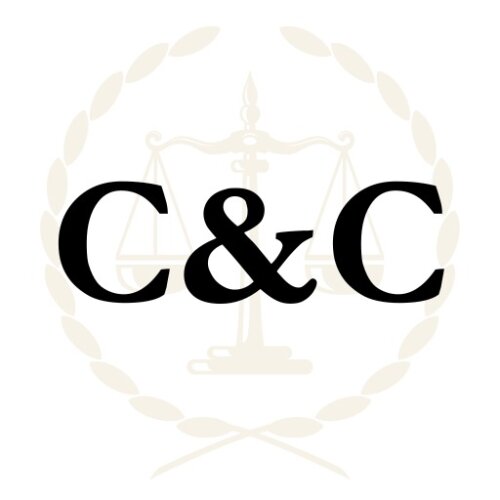Best Trusts Lawyers in Malaysia
Share your needs with us, get contacted by law firms.
Free. Takes 2 min.
Or refine your search by selecting a city:
List of the best lawyers in Malaysia
About Trusts Law in Malaysia
Trusts law in Malaysia is primarily governed by the Trustees Act 1949. A trust is an arrangement whereby one party, known as the trustee, holds assets for the benefit of another party known as the beneficiary. Trusts can be established for various purposes, including estate planning, wealth management, and ensuring financial support for dependents. The creation and management of trusts must adhere to Malaysian legal standards to ensure their legitimacy and effectiveness.
Why You May Need a Lawyer
There are several situations in which you might require the assistance of a lawyer specializing in trusts:
- Drafting a Trust Deed: Setting up a trust requires careful legal drafting to ensure it meets your goals and complies with Malaysian law.
- Managing or Settling a Trust: You may need advice on how to properly manage or wind up a trust, ensuring that the interests of all beneficiaries are protected.
- Disputes Among Beneficiaries: Legal conflicts may arise related to trust distributions, especially in family settings, requiring mediation or legal intervention.
- Tax Implications: Understanding the tax obligations and exemptions related to a trust is crucial and may require specialized legal advice.
Local Laws Overview
The foundational piece of legislation governing trusts in Malaysia is the Trustees Act 1949. Key aspects include:
- Trustee Powers: Trustees are empowered to manage the trust property according to the terms of the trust deed and legal statutes.
- Duties and Responsibilities: Trustees have a fiduciary duty to act in the best interest of the beneficiaries.
- Trust Modification: Under certain conditions, trusts may be altered or terminated in keeping with legal stipulations and beneficiary agreements.
- Regulations on Private Trusts: These are generally more flexible and can be tailored to individual needs but must remain compliant with national law.
Frequently Asked Questions
What is a trust?
A trust is a legal arrangement in which a trustee holds assets for the benefit of one or more beneficiaries.
Who can be a trustee in Malaysia?
Individuals or corporations can act as trustees, provided they are willing and capable of carrying out their duties.
How do I create a trust in Malaysia?
A trust is typically created through a trust deed, which should be drafted with the assistance of a lawyer to ensure all legal requirements are met.
What is the role of a trust lawyer?
A trust lawyer assists in the creation, management, and dissolution of trusts, as well as in resolving any related disputes.
Can a trust be contested in Malaysia?
Yes, trusts can be contested in court, usually on grounds such as undue influence, lack of capacity, or failure to meet legal requirements.
Are trusts subject to taxation in Malaysia?
Trusts may have tax obligations, including income tax on trust earnings. Consultation with a tax advisor is recommended.
Do trusts have to be registered in Malaysia?
Generally, trusts do not require registration unless specified by law, but maintaining complete records is crucial.
Can a trust be revoked?
Whether a trust can be revoked depends on its terms. Some trusts, expressly specified as irrevocable, cannot be revoked.
How are beneficiaries chosen for a trust?
The settlor specifies beneficiaries in the trust deed, and changes may generally require amendments to the deed.
What happens when a trustee fails in their duties?
If a trustee fails their fiduciary duties, legal action can be taken to hold them accountable and possibly remove them.
Additional Resources
For further information or assistance, consider reaching out to the following:
- The Malaysian Bar Council: Offers resources and directories for legal professionals.
- Private Trust Companies: Provide management services and can offer valuable insights.
- Local banks with trust services divisions: Often have dedicated teams for trusts.
- The Inland Revenue Board of Malaysia: For inquiries on trust-related taxation.
Next Steps
If you require legal assistance for trusts, consider these steps:
- Consult with a Trust Lawyer: Get professional legal advice tailored to your situation.
- Draft or Review Trust Deeds: Ensure your legal documents are comprehensive and compliant.
- Address any disputes promptly: Avoid escalation by seeking mediation or arbitration.
- Stay informed on legal updates: Trust laws can evolve, so staying informed helps in compliance and optimization.
Lawzana helps you find the best lawyers and law firms in Malaysia through a curated and pre-screened list of qualified legal professionals. Our platform offers rankings and detailed profiles of attorneys and law firms, allowing you to compare based on practice areas, including Trusts, experience, and client feedback.
Each profile includes a description of the firm's areas of practice, client reviews, team members and partners, year of establishment, spoken languages, office locations, contact information, social media presence, and any published articles or resources. Most firms on our platform speak English and are experienced in both local and international legal matters.
Get a quote from top-rated law firms in Malaysia — quickly, securely, and without unnecessary hassle.
Disclaimer:
The information provided on this page is for general informational purposes only and does not constitute legal advice. While we strive to ensure the accuracy and relevance of the content, legal information may change over time, and interpretations of the law can vary. You should always consult with a qualified legal professional for advice specific to your situation.
We disclaim all liability for actions taken or not taken based on the content of this page. If you believe any information is incorrect or outdated, please contact us, and we will review and update it where appropriate.
Browse trusts law firms by city in Malaysia
Refine your search by selecting a city.

















